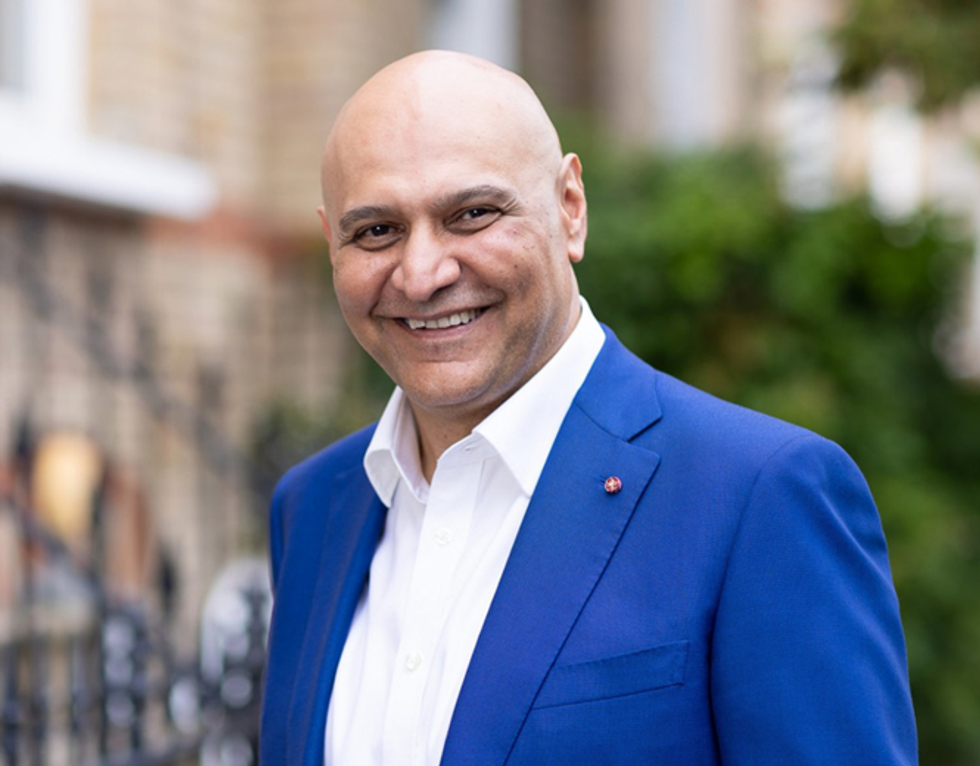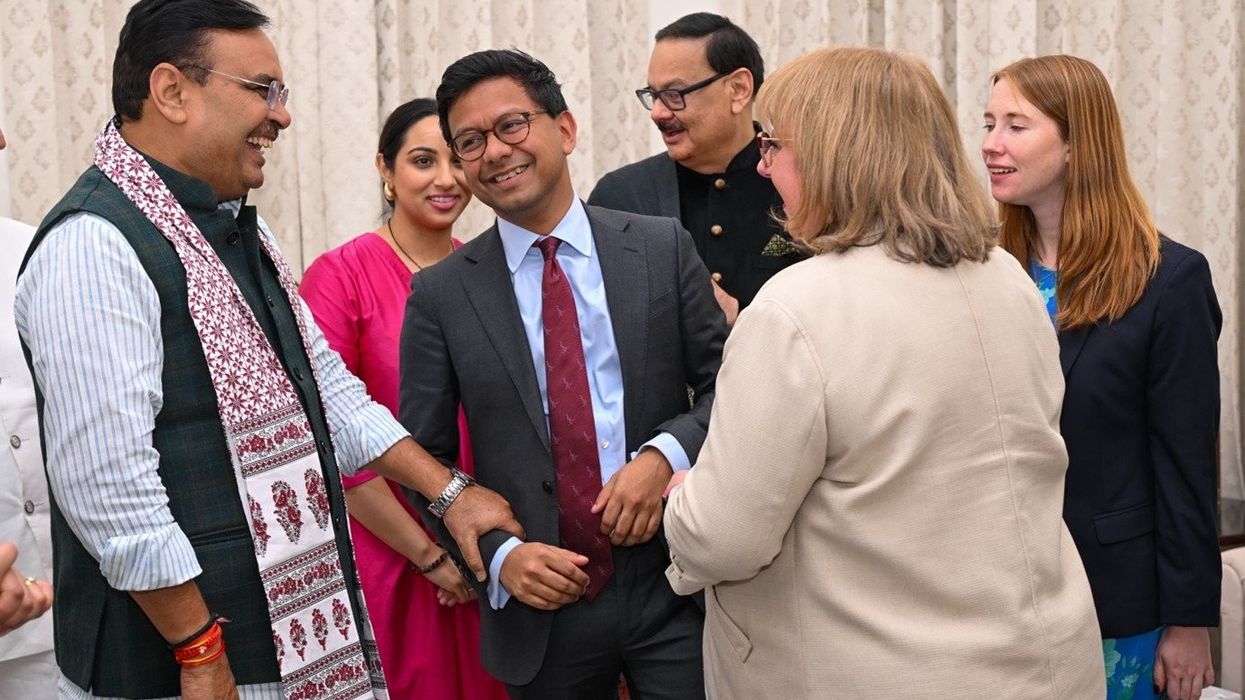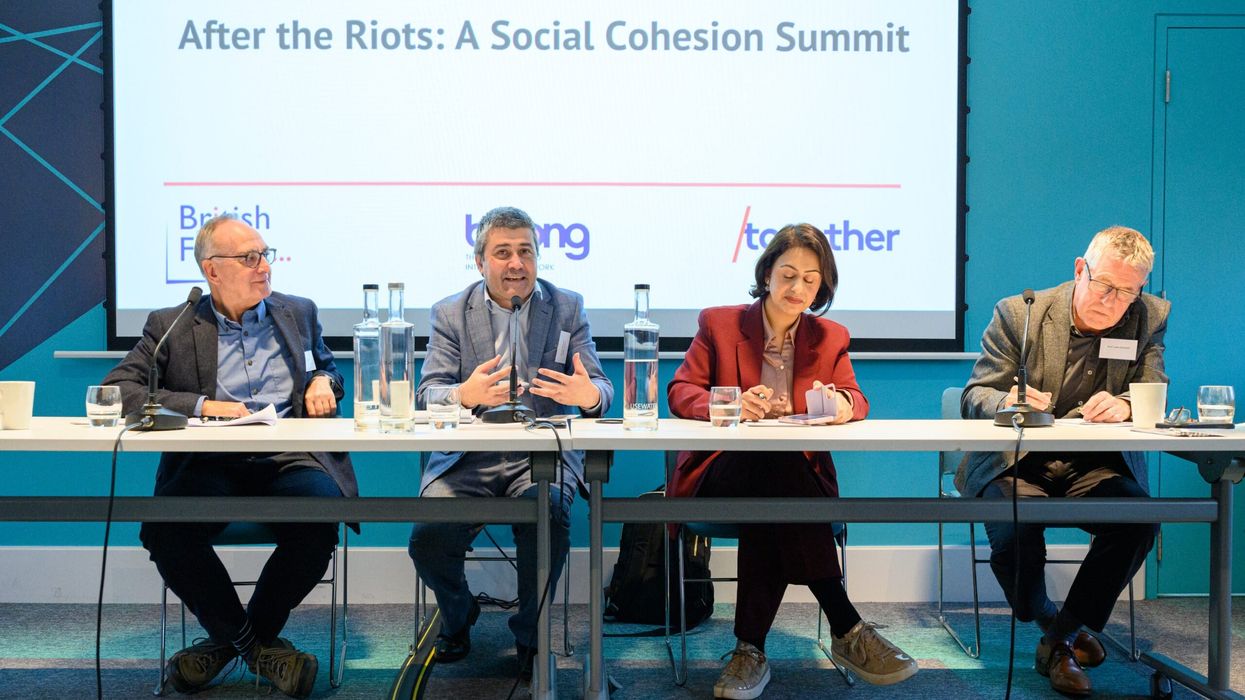Multiculturalism in the United Kingdom continues to play such a positive and important role throughout British society – from business and entrepreneurship to politics and culture.
Our country’s Prime Minister is the first British Asian prime minister, whilst others are shaping the business landscape by infusing their unique perspectives, innovation and insights into a wide-range of industries and sectors.
Breaking down barriers and a clearer social commitment to equality, diversity and inclusion has ushered in a new era, where British Asian entrepreneurs and innovators, in particular, are not only positively disrupting industries but also using their prominent platforms to actively advocate for social causes, in the UK and abroad.
In this dynamic landscape of cultural diversity, social impact and economic activity, international development agency, the British Asian Trust, stands out as a beacon of leadership and a catalyst for fostering entrepreneurship, for the betterment of our global communities. Their wide-ranging and high impact work sparked my interest, sufficient to get directly involved in 2016, and in 2022 I joined their UK Advisory Council.
Founded in 2007, by HM King Charles when he was The Prince of Wales, the Trust is committed to empowering British Asian leaders and business entrepreneurs from all backgrounds, to work together to help tackle widespread poverty, inequality and injustice in south Asia.
Alongside working with key development players across the region to deliver key programmes, the Trust also partners directly with local organisations on the ground, enabling innovative and informed investment in solutions and creating sustainable, positive change that can be taken to scale. Incorporating a private sector rigour and entrepreneurial drive into nonprofit design and delivery is part of what has made the organisation so effective - and this was part of its appeal to me.
As part of the Trust’s entrepreneurial work to alleviate poverty and unlock the potential of disadvantaged people across south Asia, they have driven forward a range of social finance initiatives that unlock new capital and aim to solve key social and economic challenges.
This work began in 2018, when $11 million was raised to launch the world’s largest education Development Impact Bond, a cutting-edge, results-based funding mechanism which supported more than 200,000 children in India.
As part of the UK Advisory Council, it has been rewarding working alongside Richard Hawkes, British Asian Trust Chief Executive, and Executive Director, Hitan Metha, who describe their work as being “driven by a network of visionary business and community leaders, all committed to creating positive change in South Asia.”
A key initiative Richard introduced was the ‘Founders Circle.’ Its goal is to bring together a dynamic blend of like-minded entrepreneurs, philanthropists and thought-leaders, collaborating to make ideas happen. This leverages the passion of business leaders and philanthropists, and provides a collaborative space through which to deliver positive impact, often at scale.
Founders Circle members are an integral part of the work of the Trust, and enjoy not only a space to contribute to the charity’s impactful mission, but also an opportunity to forge and grow meaningful connections - and more.
In my home region of the Midlands, I’m proud that ours is an area well known for its diversity and a dynamic economy. It’s an area that has prospered as a result of multiculturalism and an active embracing of diversity. In 2020, the Founders Circle launched the Trust’s first regional Chapter in the Midlands, a locally-led and locally focussed British Asian Trust assembly, with the aim of encouraging a rich and wide ranging array of ideas to come forward, incorporating the leading voices from the area.
When I first spoke to Richard about the work of the Trust he highlighted how the charity was founded as one of the (then) Prince’s charities, and over the 17 year since inception, it has worked to grow and curate a remarkable network, including those who not only find value in their association with the British Asian Trust, but also bring value to others in our network.
Speaking about taking next steps, he said “We encourage connections by delivering a calendar of excellent events throughout the year, building connections through our wider collective. Looking forward, we’d be delighted to invite more leaders and influencers within the business community of the Midlands to join us to amplify the Trust’s mission.”
I’ve been pleased to be part of the Trust’s work to promote regional partnerships - and it has been rewarding to collaborate with Richard, Hitan and the British Asian Team to accelerate impact at scale across a range of programmes. Working together, we have quite literally saved tens of thousands of lives. In 2020, my family foundation, the Randal Foundation, partnered with the British Asian Trust at the height of the Covid-19 pandemic.
We provided welfare parcels to some of the millions of migrant workers and their families who had been forced to walk hundreds of miles to return home to their rural villages in India, without food or money, due to national lock-downs. In total 137,000 lives were directly saved by this powerful collaborative initiative.
Another example of our partnership involved charitable investment we made alongside the British Asian Trust, to provide an oxygen generator to the 550 bed St Martha’s Hospital, in Bangalore, delivering a sustainable supply of hospital grade, life-saving oxygen to patients suffering severe respiratory disease.
As a Midlands based UK business leader, through the work of my family’s charitable Foundation, which has an aspiration to directly save 1 million lives, as well as through my role with the Trust, I’ve seen first hand the remarkable outcomes that can be achieved.
A further and notable aspect of the British Asian Trust’s regional work that I am drawn to, is their emphasis on positively capitalising on the huge power of business partnerships when connected into the third sector - something I have advocated for over many years now.

I firmly believe that charity, social enterprise and business engagement together can help build genuine inclusivity, bring social impact to the fore for businesses, and in turn, business can be the catalyst for accelerating the reach and impact of organisations working to address some of society’s most pressing challenges.
In my role with the British Asian Trust - and as a businessman, I’ve seen the incredible difference this collective action can make – and the cumulative change that can be achieved at scale, when we powerfully collaborate. By fostering collaboration and an environment that celebrates diversity, we can create a lasting and positive impact - strengthening our communities and underpinning potential within the local and national economic landscape.
Collective action taken together is also a catalyst for more: highlighting how entrepreneurs can use their skills, time and resources for the betterment of society - as well as their corporate success.
My hope is that these important partnerships continue - and grow. I know there are like-minded people in every part of our region who will be poised for involvement.
And with many diverse ways to be involved - through strategic initiatives, mentorship programmes, networking and more - and with its commitment to inclusivity, the British Asian Trust is waiting!
Get involved, contact me to find out more and let’s work together to help transform not only thousands of lives, but let’s shape the future too - locally, nationally and internationally - one entrepreneur at a time.
(The author is the Chairman of the Randal Charitable Foundation)





















British Asian Trust committed to tackle poverty, inequality and injustice in south Asia
In this dynamic landscape of cultural diversity, the British Asian Trust, stands out as a beacon of leadership